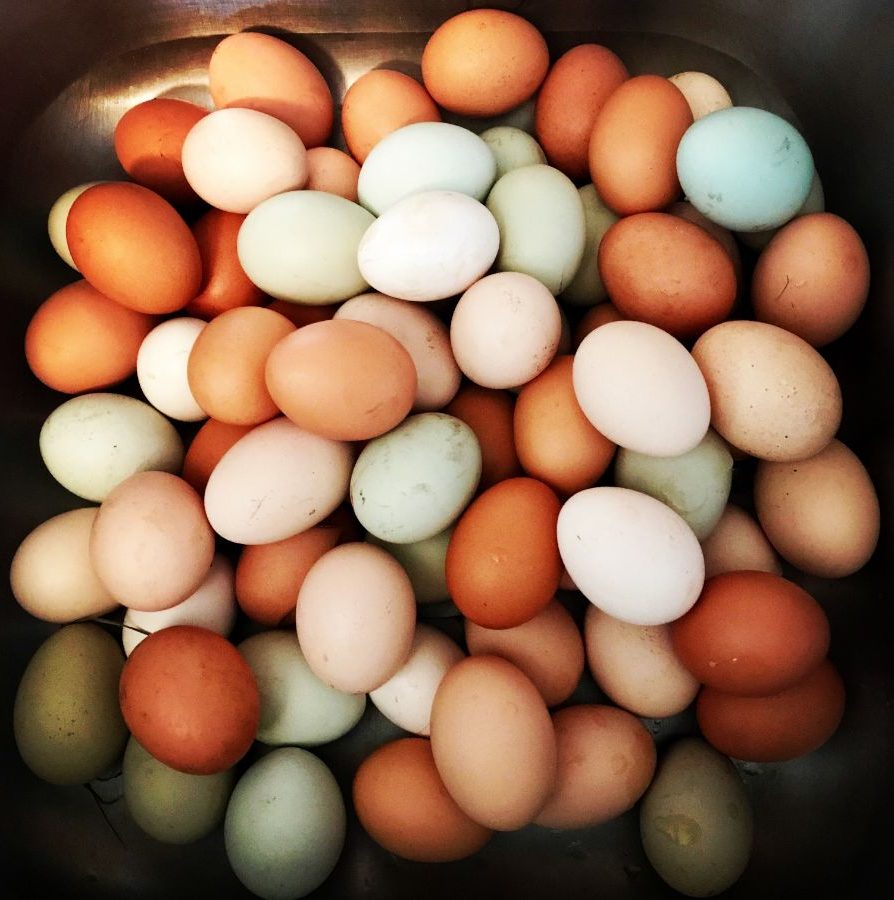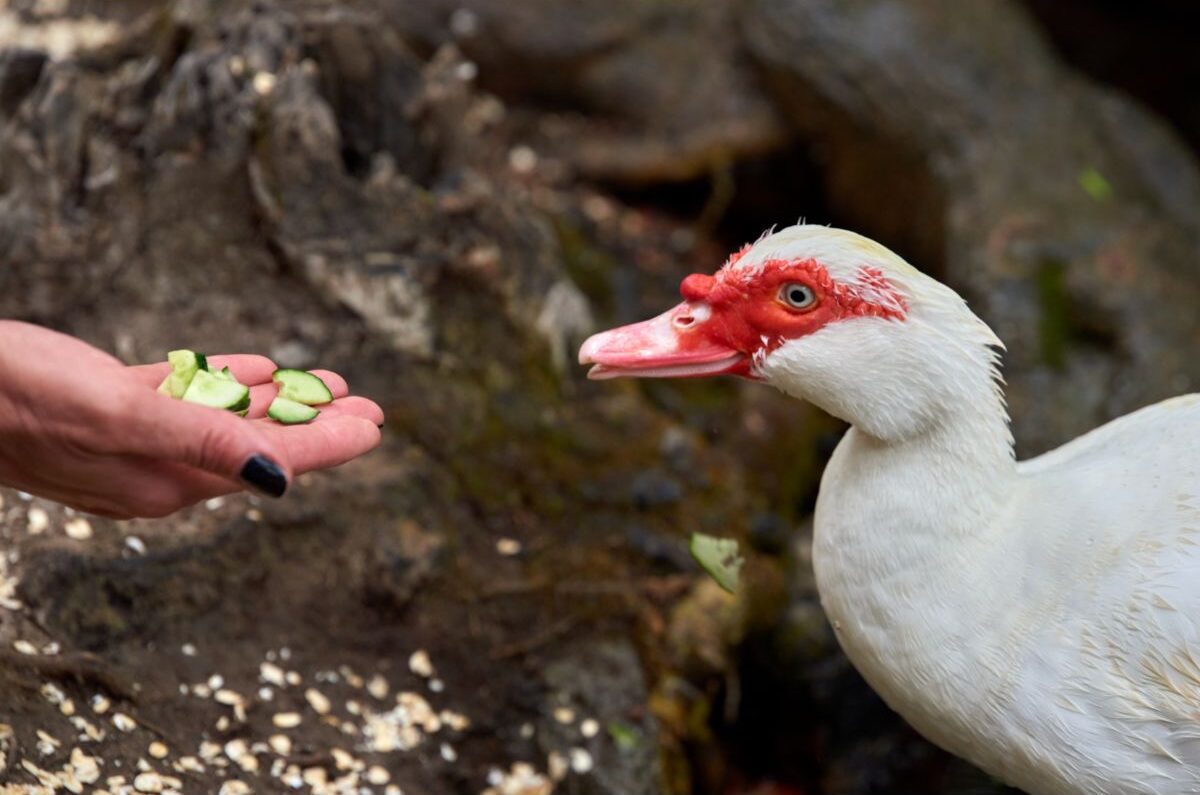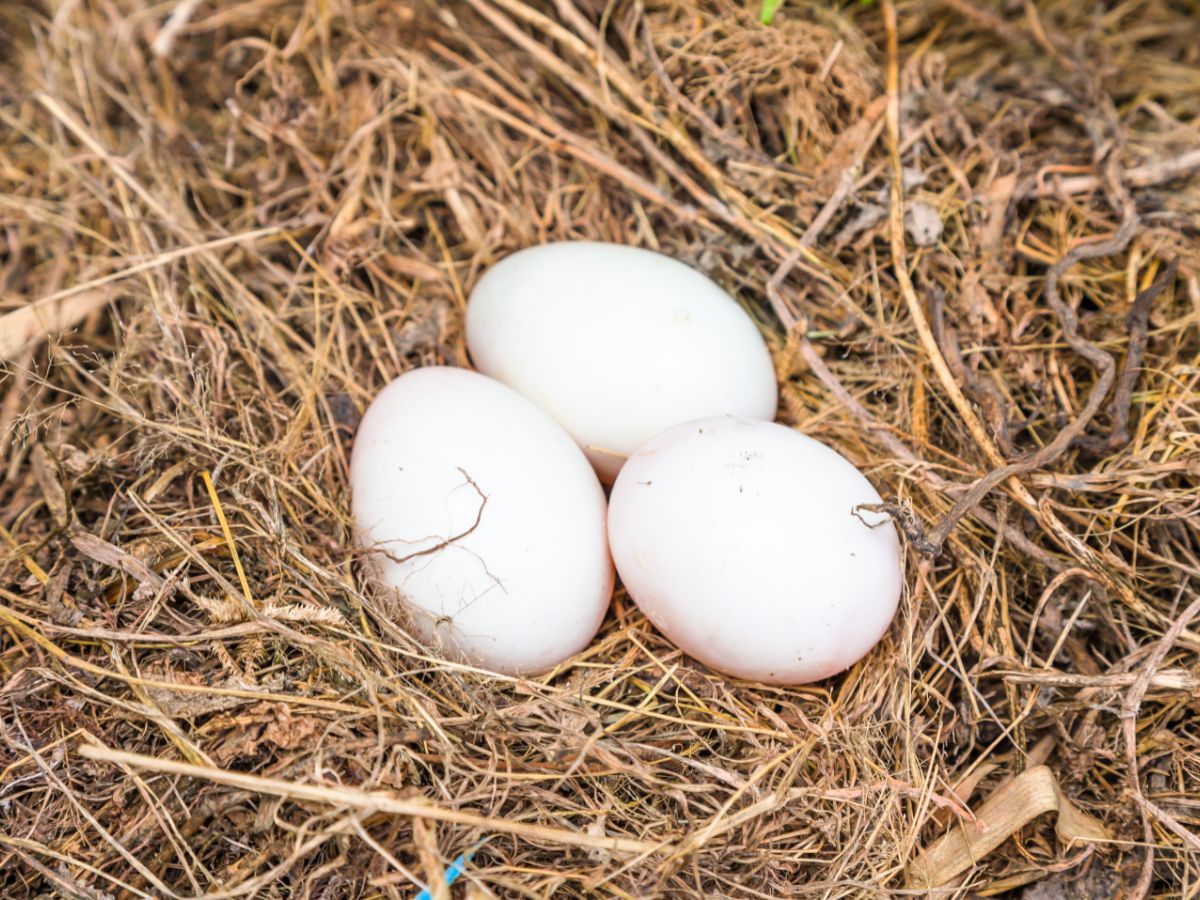Eggs are very common in many households as they make a great addition to breakfast. They can also be used in many other things like baking. However, have you been storing your eggs incorrectly? Is there a certain way that eggs can be stored the best?
Eggs are best stored in a refrigerator as they will last much longer. However, they can be stored at room temperature if they come directly from the farm and are not rinsed to get rid of the dirt. The best way to store them is with the pointy end facing down.
Eggs are one of the best foods on earth. However, storing them incorrectly can impact their freshness, and that’s not something you want to compromise. Here’s how to best store eggs.
Contents
The Best Way To Store Eggs
Generally, the best way to store eggs is in the fridge. According to research, they survive much longer that way, up to six months, but I don’t think that is much of a concern as eggs usually get devoured much quicker.
Salmonella is prevalent and found in roughly 1 out of every 20,000 chicken eggs laid. When those eggs are laid, they contain approximately 2 and 5 microorganisms. While it takes around 100 microscopic organisms to truly make an individual sick, these bacteria multiply at an astonishing rate if the eggs are not quickly refrigerated.
Refrigerating eggs at or below 39⁰F (4⁰C) slows most bacterial growth and minimizes the risk of salmonella illness. However, the best way to store eggs is also dependent on the source of the eggs.
Eggs have a thin natural protective membrane that keeps them fresh for several weeks. Eggs mass-produced and intended for grocery shops are cleaned to remove any traces of cage filth, so they look presentable.
This technique also removes that natural covering on the eggs that keeps them from being overly porous, preventing outside pathogens from entering the eggshells. Therefore, if you live in certain states, like the United States, where eggs must get washed, and you get your eggs at the grocery store, keep them in the refrigerator.
However, if you acquire your eggs fresh from the farm, and they aren’t cleaned, you can keep them in your kitchen at room temperature. You simply need to hand-wash them before cracking them open.
Eggs are protected by a natural layer that will preserve freshness. They usually last a week or two, in my experience, so I wouldn’t eat them after a month. The secret is to avoid washing them if you do not want to store them in the fridge.
What Is The Best Position For Eggs To Be Stored In?
Believe it or not, there is a specific position in which eggs should be stored. An air sac can be found at the rounded apex of every egg. Any growing chicks will breathe from this air pocket once their lungs have formed before they hatch, and inhale outside air.
The air pocket will expand and grow larger as an egg matures, whether or not it has been fertilized, as air travels through into the eggshell pores and moisture escapes. The bloom on the egg is natural.
One of the main reasons eggs should not be cleaned until just before usage is because of this. This is an invisible layer that keeps bacteria and air out. This will ensure that the bloom is preserved.
Bacteria and air enter the egg through the pores and come into contact with the egg whites first because the yolk is attached roughly in the middle of the egg by fine, ropy strands of protein called chalazae.
The egg white, also known as albumen, protects the yolk, which is the section of the egg that is more easily spoiled. Bacteria cannot live and multiply within the egg because the white is alkaline.
However, bacteria will transfer to the nutrient-rich yolk when an egg becomes older. They will thrive in this environment. The air sac will enlarge as the egg ages, and bacteria will edge closer to the yolk. Storing the egg with the pointy end up and the air sac at the bottom leads to the air pocket gently rising and moving towards the yolk, carrying any air and bacteria with it.
This will not only hasten the aging process of the egg, making it less fresh, because continuing to keep the yolk entirely contained within the white safeguards the yolk from drying out, but it will also raise the risk that salmonella or any other bacteria will reach the yolk and contaminate the egg more quickly.
It’s also possible that the air sac will burst and taint the egg with any bacteria it carries. The air pocket remains at the top of the egg, which is the pointy end, by storing the egg’s pointy end down. Another advantage of keeping your eggs pointed end down is that the yolks will be centralized.
How Can You Tell If A Stored Egg Is No Longer Good?
Eggs can be stored for 30 to 45 days in the fridge and stored at room temperature for 7 to 10 days. However, the problems arise because store-bought eggs are already roughly three weeks old.
Float Test
There is a full-proof way to see if the stored eggs have gone off. To see if the eggs are still good, place them in a bowl of water.
Three things could happen after placing the egg in a bowl of water.
- Either the egg remains at the bottom on its side. This indicates that your eggs are still safe for human consumption.
- The egg could also be on its bottom, upside down. This shows that your eggs are still fresh, but they should be used as soon as possible before they spoil.
- The final possibility is that your egg will float in the dish and stay upright. If I were you, I wouldn’t eat an egg that does this.
Shake test
Older and fresh eggs can also be distinguished by shaking. Old eggs make gurgling noises when shaken because they have already lost a lot of liquid and their egg white is thinner than fresh eggs. Fresh eggs, on the other hand, should not make any noise.
Yolk and egg white-Test
The last way to test the freshness of an egg is to crack it. In fresh eggs, the egg white is thick and the yolk is bulging. The egg white and yolk are clearly separated. In old eggs, the egg white becomes thinner and the yolk flatter, and the distinction between the two components slowly becomes blurred.
Conclusion
Although the best way to store eggs is in the fridge, another equally great way to store them is in your kitchen at room temperature. However, you can only do this if they come directly from a farm, or they have not yet been washed. Eggs also need to be stored in the correct position, as storing them incorrectly will affect their freshness.




